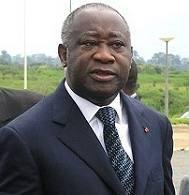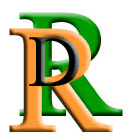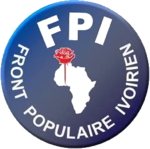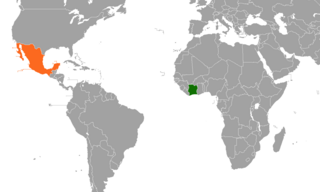
Koudou Laurent Gbagbo is an Ivorian politician who was the President of Côte d'Ivoire from 2000 until his arrest in April 2011. A historian, Gbagbo was imprisoned in the early 1970s and again in the early 1990s, and he lived in exile in France during much of the 1980s as a result of his union activism. Gbagbo founded the Ivorian Popular Front (FPI) in 1982 and ran unsuccessfully for president against Félix Houphouët-Boigny at the start of multi-party politics in 1990. He won a seat in the National Assembly of Côte d'Ivoire in 1990.

The Rally of the Republicans is a liberal party in Ivory Coast. The party is the country's governing party; the party's leader, Alassane Ouattara, is the current President of Ivory Coast.

The Ivorian Popular Front is a centre-left, democratic socialist and social democratic political party in Ivory Coast.

The Ivorian Party of Workers is a centre-left, democratic socialist and social democratic, political party in Ivory Coast. It is led by Francis Wodié and was founded on April 8, 1990.

Guillaume Kigbafori Soro is an Ivorian politician who was the Prime Minister of Côte d'Ivoire from April 2007 to March 2012. Prior to his service as Prime Minister, Soro led the Patriotic Movement of Côte d'Ivoire, and later the New Forces as its Secretary-General. Since March 2012, Soro has been President of the National Assembly of Côte d'Ivoire.

Senatorial elections were held in Mauritania on 21 January 2007 and on 4 February 2007. There are 56 seats in the Senate. The senators were elected by 3,688 municipal councillors, except for three who were chosen by the elected senators.

Presidential elections were held in Ivory Coast in 2010. The first round was held on 31 October, and a second round, in which President Laurent Gbagbo faced opposition leader Alassane Ouattara, was held on 28 November 2010. Originally scheduled to be held in 2005, the vote was delayed several times due to the Ivorian Civil War and difficulties involved in the organization and preparation of the elections. A peace agreement between the government and the former rebel New Forces was signed on 4 March 2007, and in late April 2009, it was announced that the elections would be held by 6 December 2009, and that the date would be announced shortly. On 15 May 2009, the date was announced to be 29 November 2009. On 11 November, the elections were postponed again due to delays in the electoral roll. It was announced on 3 December 2009 to be held in late February or early March 2010.

A parliamentary election was held in Ivory Coast on 11 December 2011, after the presidential election which was held in late 2010. This followed a peace agreement between the government and the New Forces that was signed in March 2007. The Rally of the Republicans, the party of President Alassane Ouattara, won just under half the seats in the National Assembly.

The 2010–11 Ivorian crisis was a political crisis in Ivory Coast which began after Laurent Gbagbo, the President of Ivory Coast since 2000, was proclaimed the winner of the Ivorian election of 2010, the first election in the country in 10 years. The opposition candidate, Alassane Ouattara, and a number of countries, organisations and leaders worldwide claimed Ouattara had won the election. After months of attempted negotiation and sporadic violence, the crisis entered a decisive stage as Ouattara's forces began a military offensive in which they quickly gained control of most of the country and besieged key targets in Abidjan, the country's largest city. International organizations have reported numerous human rights violations, and the UN undertook its own military action with the stated objective to protect itself and civilians.

Jeannot Ahoussou-Kouadio is an Ivorian politician who was Prime Minister of Ivory Coast from March 2012 to November 2012. Previously he was Minister of Industry from 2002 to 2005 and Minister of Justice from 2010 to 2012.
The following is a timeline of the history of the city of Abidjan, Ivory Coast.

Parliamentary elections were held in Ivory Coast on 18 December 2016. The new constitution, which was approved in a referendum in October, reduced the term for the 255 members of the National Assembly from five to four years.

A constitutional referendum was held in Ivory Coast on 30 October 2016. Voters were asked whether they approve of a proposed new constitution. The new constitution would create a Senate, remove the nationality clause from the presidential requirements and establish the post of Vice-President. The constitution was approved by 93.42% of votes with a 42.42% turnout, as announced by the president of the Independent Electoral Commission (CEI).

Ivory Coast–Mexico relations refers to the diplomatic relations between Ivory Coast and Mexico.
Anne Jacqueline Oble also known as Jacqueline Lohoues-Oble is an Ivorian lawyer and politician who was the first woman to stand as a candidate in a presidential election.

Véronique Bra Kanon is an Ivorian politician and vice-president of the National Assembly of the Ivory Coast. She was the first woman to be president of an Ivorian regional council, leading the council of Moronou from 2013 to 2018.














